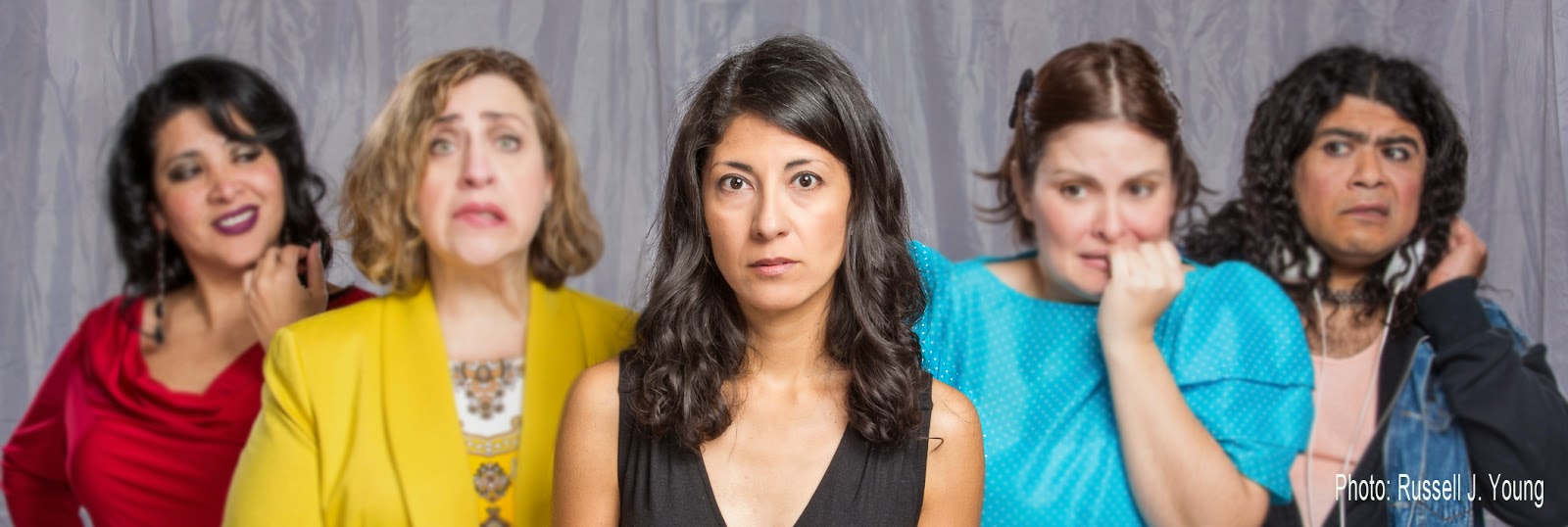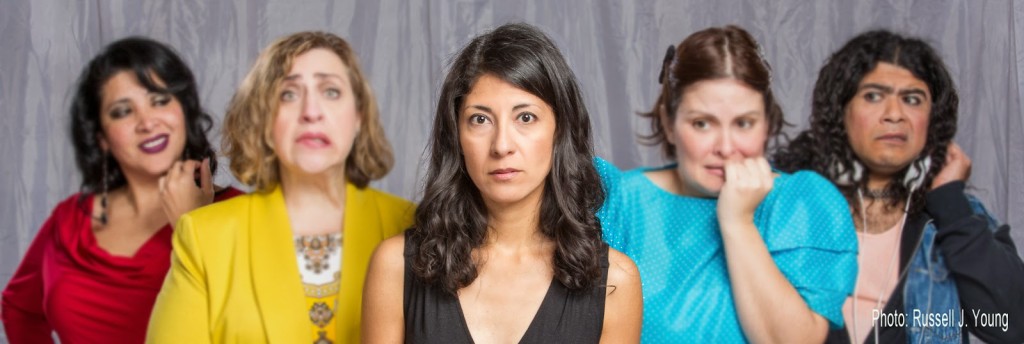Milagro is ramping up for its next production, Opción Múltiple, a dark comedy taking a light-hearted look at mental health issues. The play, originally written in 1999 for 5 young Mexican actresses of the author’s
acquaintance, has since been performed all over Latin America and, two
years ago, in Spain. In preparation for the opening and the playwright’s upcoming visit to Portland, Marketing Assistant Vicente Guzmán-Orozco, who is also part of the cast, had the chance to ask the playwright some questions about this hilarious script. Read the interview in the original Spanish here.
Vicente Guzmán-Orozco: Is Opción Múltiple different (and not just in originality) to other plays and adaptations you have given the world’s audiences? How did its beginnings affect the subsequent productions?
Luis Mario Moncada Gil: I can say that the rest of my plays don’t have much to do with Opción Múltiple; I have always worked mainly in in the field of experimental theatre, playing with structure, hybridizing genres, creating narrative adaptations, incorporating multimedia, etc. Opción Múltiple is a play I wrote after a great failure; all I wanted was to have fun and forget the heaviness of earlier works. However, audience response to the play was such that it certainly has forced me to keep it in mind every time I take up a new project. It’s a little deceptive, since many times people request plays thinking of something similar to Opción Múltiple, and it is very difficult for me to repeat a model, I need to do different things. I have not written another comedy like it, but I have become more conscious of character construction and the audience’s reaction.
VGO: Each play is for its author like a child that is born, often with no control over its future. What surprises has Opción Múltiple brought with it since its first performance?
LMMG: I am surprised by the way the play has been produced all over Mexico and other countries, especially because I initially did not have high expectations for it. Two years ago it was staged in Spain with an exclusively-male cast, and they say it works quite well. It is produced often by university and community theatres. All in all, my greatest surprise has been seeing an American TV series handling the exact same premises: the incredible part was that the main character (some years older) had the same alter egos and the troubling situations that they put her in were very similar. For a moment I became angry and even thought about suing, but once some time had passed I reached the conclusion (or so I want to see it to keep my ego in check) that some ideas just float in the ether. What is certain is that the series ended abruptly and it did not reach the denouement that it hinted at; if the child alter ego had uncovered the memory that generated the trauma, I surely would have called my attorney, … but now we will never know.
VGO: What kind of response has there been from the professional mental health community?
LMMG: Although the play was never intended to be an exhaustive portrayal of a mental issue, it has been generally well received by the specialists in the field; there have been post-performance talks and the most amusing thing is that – regardless of the mental health issues – people always feel a natural inclination for one or another of the personalities.
VGO: You mention in your blog that the idea has risen to turn the play into a sitcom. Do you still have that idea in mind and/or has there been development in that direction?
LMMG: There was, some time ago, talk of the actor and producer Eugenio Derbez creating a sitcom based on it, which never materialized. I feel that the elements to carry it out are there (I have mentioned the American series that uses similar premises) but I am not one to revolve for long around only one project, and instead need to work on new things, so I have not followed up; truth be told, television in Mexico is very stagnant and does not seek out new content.
VGO: How do you feel to see your plays so well received overseas?
LMMG: Well, I would not claim that my plays are performed everywhere or that they have great success; I should instead confess it is the exception. As I mentioned, I move within a more experimental environment, my plays are not exactly repertory material, nor are they able to be staged by just any group; rather they concern language experimentation or circumstantial subjects, such as the play I wrote about the Facebook phenomenon in 2009. It is true that I have written works for companies abroad, most recently for The Royal Shakespeare Company (A soldier in every son), a saga about the power struggle in pre-Hispanic Mexico based on Shakespeare’s history plays, but in general I work mostly domestically, not thinking about the international reach of my plays. When it happens, such as in this case, I consider it a huge gift that I receive from my profession.
Follow the story of the production right here on our blog, on our Facebook page, and get your tickets to Opción Múltiple today!


